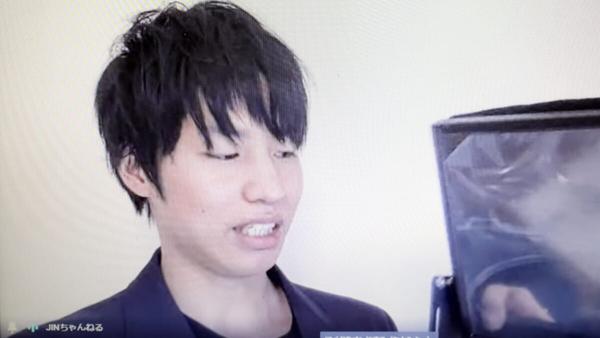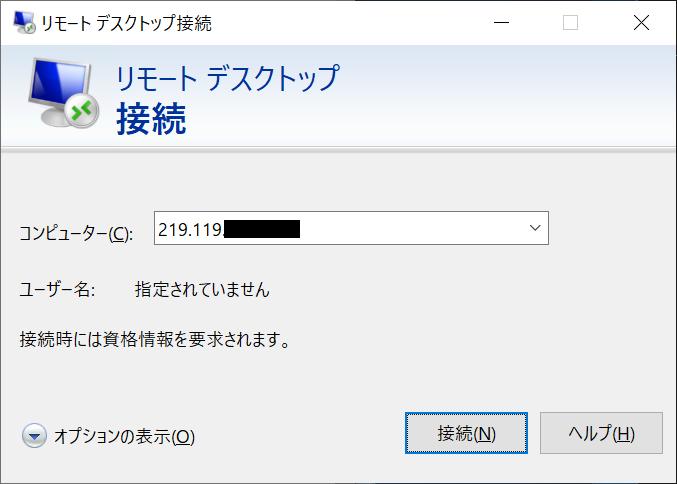The 12 finalists of "YouTube NextUp 2020", a program aimed at discovering and supporting the next generation of YouTube creators
(Composition and photography: Takeshi Maruyama / Writing: kitsune)
The two pillars of "Knowledge of child-rearing and understanding of developmental disorders" and "Social worker course"
-First of all, what kind of videos does "JIN Channel" distribute Do you have a channel? Please give us an overview.
It is a channel that mainly disseminates concerns about raising children, advice for deepening knowledge and understanding of developmental disorders, and how to develop children's abilities. I am the representative of a company called "General Incorporated Association Hundred", where I support parents who are worried about raising children and their children's growth, and children who are not able to fit in with their classes at school. Also, recently, from the standpoint of a social worker, I have been generously disseminating content that makes it easier for people who want to become a social worker to obtain qualifications.
- When did you start your channel?
It was two years ago that I uploaded my first video. Before we started full-scale video distribution, we often held lectures about "development" and "difficulty in life." But after Corona, everything stopped... From there, I started focusing on distribution on YouTube.
-Did you make videos from the beginning in the same style as you do now?
At first, I only uploaded videos of lectures as they were, and videos that talked about developmental disorders and child-rearing. The update frequency wasn't that high, and I didn't edit anything at all. In addition, because it is a niche field, the number of views did not increase much. However, when I thought that transmitting information about these fields would be valuable both for myself and for the world, I would work a little harder on editing in order to successfully deliver my voice to the world. I thought, I have to polish my talk.
--What do you devised when making videos?
We live separately within the channel depending on the time. For example, recently there was a "national exam for social workers", so many of the people who watched the videos were "examinees who want to pass the exam". Therefore, I mainly uploaded videos such as "previous lecture" and "question and answer". However, at other times, we deliver entertaining content to general viewers for the purpose of raising welfare awareness.
--Is there a reason why you decided to change the content depending on the time?
After all, the video of the "social worker course" doesn't grow until just before the exam (laughs). Looking at the data last year, I found that it took about a month and a half before the exam for everyone to concentrate on watching the videos. Actually, a year and a half ago, I was just recklessly uploading videos. But the video didn't grow at all. I took the data from there and reviewed "why is this video growing?" After that, the number of subscribers increased rapidly.
Explaining difficult content in an easy-to-understand manner for anyone
--Are there any videos on JIN Channel that have high viewer ratings and any tendencies?
Some videos I uploaded a few years ago are still getting more views. There are many cases where people who are in trouble about the content research it and get caught. For example, in the videos I uploaded two years ago with content such as "learning disability" and "obsessive-compulsive disorder", not only parents but also people with disabilities search and find them, and I receive regular comments. There are many things.
--It looks like there are a lot of comments and questions from the viewers, what do you think?

Right. Many people ask questions in the comment section of the video. If someone asks me a question, I interact with them on the spot and respond. So, I think that "a channel where if you ask a question, an expert will politely answer" is becoming established in a good way.
--Do you have any tips or tricks for explaining in the video?
I think the advantage of "JIN Channel" is that it explains difficult content in an easy-to-understand way for anyone. In the case of reference books, the contents are written in difficult sentences, and there are many other documents that must be read, but they are explained with examples that even elementary school students can understand. For example, when explaining the characteristics of ADHD (Attention Deficit Hyperactivity Disorder), I use Gian from Doraemon as an example. Gian suddenly hits Nobita, suddenly starts running after him, and starts singing even though no one wants to hear him. I'm careful about how to present such easy-to-understand examples.
--Is there anything you pay attention to when speaking?
As for how to speak, if you talk slowly at the beginning, you will often leave the video. That's why I'm trying to start with the conclusion. After stating the conclusion and purpose of the video, I try to enter the reason and commentary.
Information exchange about making assignments entertaining
--How did you like participating in the creator camp of "YouTube NextUp 2020"?
I think it was a camp where I could directly feel the high level and passion of the creators. In particular, creators with tens of thousands of registered users had a different way of thinking about videos than I thought, so it was great to be able to exchange opinions with them.
-Did you get any feedback about your channel at Creator Camp?
I learned some things to improve. In my case, there are many videos for core viewers, so I was told that by increasing the number of videos for the general public, the number of views and subscribers would still increase. For example, if it's a video like ``Origami course taught by a social worker,'' the idea is that it would be easy for both children and nursery teachers to watch it. I've always thought that channels in the field of education might have an issue of entertainment, so I learned a lot.
--What did you learn technically?
At the camp, I was able to listen to lectures from camera and lighting professionals, and learned in detail everything from detailed editing techniques such as jump cuts to shooting methods that are conscious of the light source when removing with a green screen. . In particular, in terms of technology, I was able to realize the importance of "voice". Unlike entertainment videos, there are quite a lot of people who listen to how-to videos without watching the video. Listen to it on the radio or listen while studying. That's why we invested the support equipment costs from "YouTube NextUp 2020" into audio equipment. I think that “whether it is easy to listen to” will become important in the future.
--Are there any devices or gadgets that have been useful in video production?
Personally, "Prompter" was a hit. Put a tablet underneath and project the letters onto the board. When you do that, characters that cannot be seen in front of the camera will appear, and it is a tool that allows you to read out the manuscript while looking at the camera. It is often used in speeches and press conferences. You can't make mistakes with educational YouTube. If you give the wrong answer on the test, you're out. It is recommended for those who have a scene where they have to speak carefully.
Creating interesting content with the aim of "making welfare into Starbucks"
-This time, "YouTube NextUp 2020" has a major theme of "learning", Do you have any experiences or thoughts about "importance"?
I think learning will give you an advantage in life. In the information society, I think the environment is ready to learn anywhere, but I feel that the number of people who actively try to learn may be a little small. At the Creator Camp, people from Google also said that Japan still has weak points in the field of "education." Overseas, there is a strong awareness of learning from YouTube, and there seems to be a culture of immediately looking it up on YouTube if there is a problem in everyday life. Active learning will increase your knowledge and increase your options. I think it's necessary to make life richer.
――In the age of COVID-19, I think there will be more opportunities to learn through videos and streaming.
After all, I think that "participation" is important. I've noticed through live-streamed lectures that just watching videos tends to be less concise than taking offline classes. To put it in extreme terms, I can listen to classes while reading manga or looking at my smartphone (laughs). It is important to actively participate by actually commenting and speaking. Instructors can only point to one person in a face-to-face class, but online, everyone is asked to comment on the answers to the questions. If you are motivated, I think the advantage of online is that you can actively participate as much as you want.
――The salaryman generation may not actively post on YouTube or SNS, but I think it is necessary to promote yourself in business settings. Please let me know if you have any tips for that.
I think it's important to keep the character from blurring. This is also something I talk about when people with developmental disabilities start working, but in advance, decide on the axis of "how far you can do it" and "what you are good at" and talk about it to those around you. By putting "self-disclosure" first, work and relationships will proceed smoothly. This is common to the general public, and I think the point is to determine your own character and standing position in advance in a large company.
――Lastly, please tell us about your activities and future goals as a creator.
First of all, I would like to aim to improve the status of social workers and other professionals while making welfare more enjoyable. Welfare is called the ``3K industry'' of ``dirty, harsh, and low pay,'' and I would like to change that image of the industry. To put it simply, we are aiming to “make welfare into Starbucks”. Like Starbucks, people who work are always bright and familiar. The members who watch "JIN Channel" not only actually pass the qualification exam, but also shine by being active in society, and the children who see them aim to become nursery teachers and welfare workers. As a result, the goal is to improve your position and increase your salary. As for "JIN Channel", I'd like to surpass 100,000 subscribers in a year and get a YouTube silver shield (laughs). To that end, I would like to work out various measures and create interesting welfare content, so please take a look.
YouTube started in May 2018. Mainly disseminating information on child-rearing knowledge, understanding of developmental disorders, and becoming a social worker.

![Lenovo's 8.8 inch one-handed tab "Legion Y700" full specs released! [Is the price in the 40,000 yen range?]](https://website-google-hk.oss-cn-hongkong.aliyuncs.com/drawing/article_results_9/2022/3/9/207e1be231154e91f34c85b4b1d2126c_0.jpeg)
![EVsmart blog Toyota's electric car "bZ4X" that makes you feel comfortable with electric cars and quick chargers / No% display of battery level [Editorial department] Popular articles Recent posts Category](https://website-google-hk.oss-cn-hongkong.aliyuncs.com/drawing/article_results_9/2022/3/9/752542064665dc2bd7addbc87a655694_0.jpeg)

